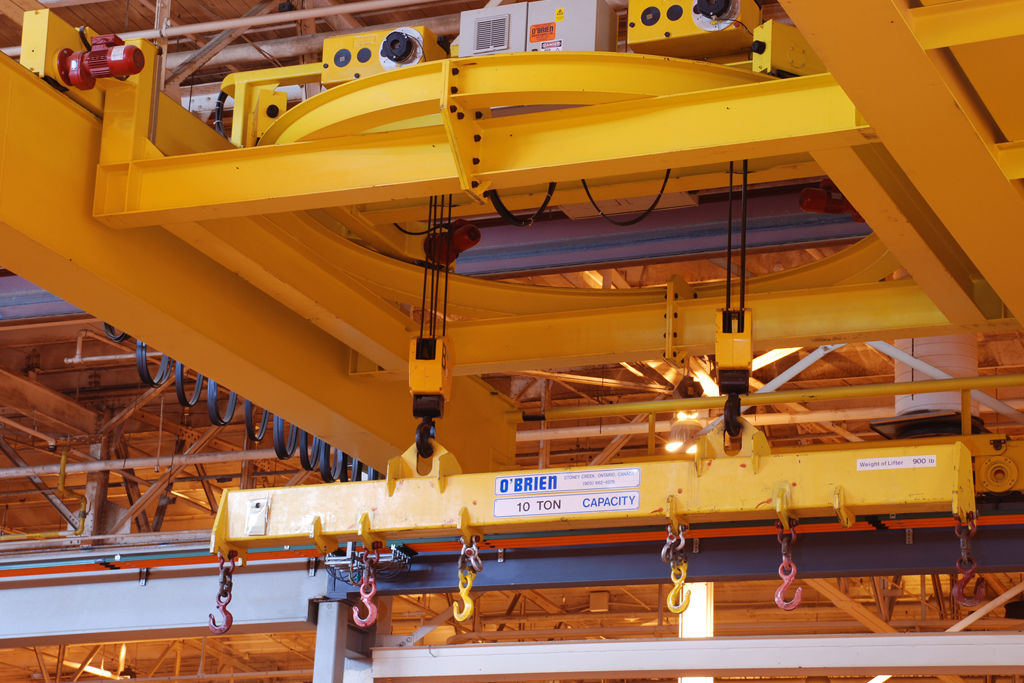Tips to Avoid Crane Failure

As with any piece of heavy equipment, overhead cranes require regular maintenance to ensure safety, efficient operation and also to prolong the life of the crane and the investment. Industrial Inspection & Analysis is an industry leader when it comes to overhead crane inspections, service and repair and understands the importance of making certain a crane is functioning properly and detecting defects and degradation through regular inspections.
There are many issues that can arise with your fleet of overhead cranes, and Industrial Inspection & Analysis would like to offer an overview of a few of the most common problems, for example alignment issues and degradation or damage to other components, such as with hooks or wire rope.
This is only an overview of some common crane problems, and it is most important to stay up to date with mandatory inspection programs as well as to keep a proactive maintenance schedule in place. Not only should you follow the recommendations from the crane manufacturer but there are external factors to consider when maintaining your fleet, such as creating a rotation cycle and considering external factors, such as the weather as these might affect crane life, operation, integrity of the machine as a whole and its components as well.
Alignment or skewing is one of the most common issues with a crane. Operating a crane with improper alignment can cause future costly repairs, downtime, crane failure, and accidents, therefore it is important to ensure the crane is inspected by a trusted and certified professional before operation. Subsequent issues can arise if a misaligned crane is continuously operated, such as over wear of the motor drive and extreme wear to the wheels and its bearings. If loud noises are heard during operation or if unusual wear appears on the wheels, this could be a sign that the crane is out of alignment and needs to be out of service and repaired immediately.
Some crane components are also subject to extreme wear under certain conditions, such as hooks being overloaded. Depending on the design, a crane’s hook holds a load of a particular weight and is also designed to hold the load at a precise direction. If the integrity of the hook is compromised, the chance of it cracking or stretching is increased greatly, which means the load could potentially slip off of the hook.
All components, especially hooks, should be regularly inspected to ensure integrity and proper performance. This, of course, will be completed during professional inspections, but ideally is also inspected by the crane operator before each use to ensure safety.
Wire rope is another component of a crane that will often have degradation or wear issues. Again, regular inspection is important because overuse, improper loads and corrosion are all common problems that can result in wire rope damage. Some conditions that can have an adverse effect on the wear of wire rope are lubrication or lack thereof, overloading, design, and environmental conditions. Wire rope should be inspected before each use, and if any damage is noticed the rope should be removed, replaced, and the damaged rope should be disposed of properly.
There are many other issues that come into play with crane care and operation, for example excessive wear on the wheels can occur if any of the aforementioned issues are happening. Also, a crane that is out of alignment will cause excessive wear on the wheels, which in turn creates issues with wheel bearings. One issue can lead to another, which is why it is paramount to have cranes regularly inspected to not only prolong the life of the equipment but moreover to ensure the safety of its operators.
Again, this is merely an overview of issues that can lead to crane failures, but to avoid downtime, costly future repairs, and accidents, it is important to have regular inspections scheduled and completed by a certified professional. IIA’s experts conduct visual and operational inspections, load, drift and alignment tests and more to make certain the equipment is safe and compliant. We are an industry leader in crane inspection and certification, because we understand the value of responsiveness, quality, and safety.
IIA for Crane Care:
- Our experts are trained to examine industry specific equipment.
- We stay up-to-date on the latest standards, regulations, and technology affecting the lift industry.
- We provide engineered repair procedures.
- We track your fleet’s inspection needs and inform you when equipment is due for inspections.




